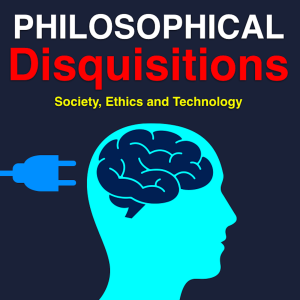
If an AI system makes a decision, should its reasons for making that decision be explainable to you? In this episode, I chat to Scott Robbins about this issue. Scott is currently completing his PhD in the ethics of artificial intelligence at the Technical University of Delft. He has a B.Sc. in Computer Science from California State University, Chico and an M.Sc. in Ethics of Technology from the University of Twente. He is a founding member of the Foundation for Responsible Robotics and a member of the 4TU Centre for Ethics and Technology. Scott is skeptical of AI as a grand solution to societal problems and argues that AI should be boring.
You can download the episode here or listen below. You can also subscribe on Apple Podcasts, Stitcher, Spotify and other podcasting services (the RSS feed is here).
Show NotesTopic covered include:
- Why do people worry about the opacity of AI?
- What's the difference between explainability and transparency?
- What's the moral value or function of explainable AI?
- Must we distinguish between the ethical value of an explanation and its epistemic value?
- Why is it so technically difficult to make AI explainable?
- Will we ever have a technical solution to the explanation problem?
- Why does Scott think there is Catch 22 involved in insisting on explainable AI?
- When should we insist on explanations and when are they unnecessary?
- Should we insist on using boring AI?
Relevant Links
- Scotts's webpage
- Scott's paper "A Misdirected Principle with a Catch: Explicability for AI"
- Scott's paper "The Value of Transparency: Bulk Data and Authorisation"
- "The Right to an Explanation Explained" by Margot Kaminski
- Episode 36 - Wachter on Algorithms and Explanations
Subscribe to the newsletter
More Episodes
92 - The Ethics of Virtual Worlds
 2021-07-09
2021-07-09
 2021-07-09
2021-07-09
91 - Rights for Robots, Animals and Nature?
 2021-06-30
2021-06-30
 2021-06-30
2021-06-30
90 - The Future of Identity
 2021-04-28
2021-04-28
 2021-04-28
2021-04-28
89 - Is Morality All About Cooperation?
 2021-03-26
2021-03-26
 2021-03-26
2021-03-26
88 - The Ethics of Social Credit Systems
 2021-02-26
2021-02-26
 2021-02-26
2021-02-26
87 - AI and the Value Alignment Problem
 2020-12-23
2020-12-23
 2020-12-23
2020-12-23
86 - Are Video Games Immoral?
 2020-12-15
2020-12-15
 2020-12-15
2020-12-15
84 - Social Media, COVID-19 and Value Change
 2020-10-20
2020-10-20
 2020-10-20
2020-10-20
83 - Privacy is Power
 2020-10-10
2020-10-10
 2020-10-10
2020-10-10
81 - Consumer Credit, Big Tech and AI Crime
 2020-09-18
2020-09-18
 2020-09-18
2020-09-18
80 - Bias, Algorithms and Criminal Justice
 2020-08-13
2020-08-13
 2020-08-13
2020-08-13
79 - Is There A Techno-Responsibility Gap?
 2020-08-05
2020-08-05
 2020-08-05
2020-08-05
76 - Surveillance, Privacy and COVID-19
 2020-04-18
2020-04-18
 2020-04-18
2020-04-18
74 - How to Understand COVID 19
 2020-04-10
2020-04-10
 2020-04-10
2020-04-10
0123456789101112131416171819
Create your
podcast in
minutes
- Full-featured podcast site
- Unlimited storage and bandwidth
- Comprehensive podcast stats
- Distribute to Apple Podcasts, Spotify, and more
- Make money with your podcast
It is Free
- Privacy Policy
- Cookie Policy
- Terms of Use
- Consent Preferences
- Copyright © 2015-2024 Podbean.com





